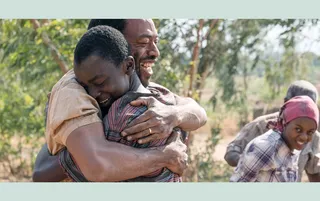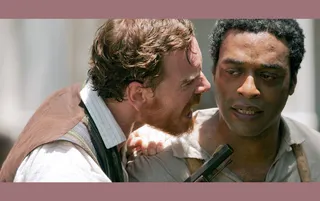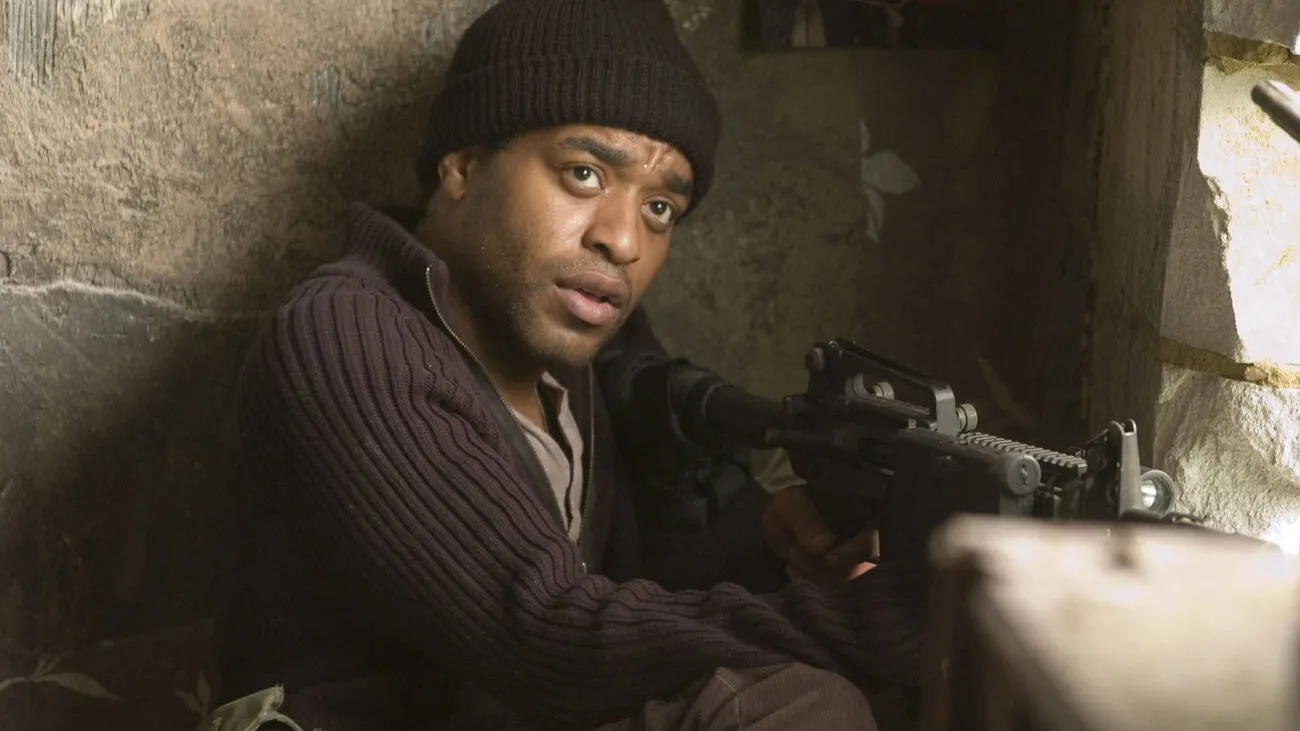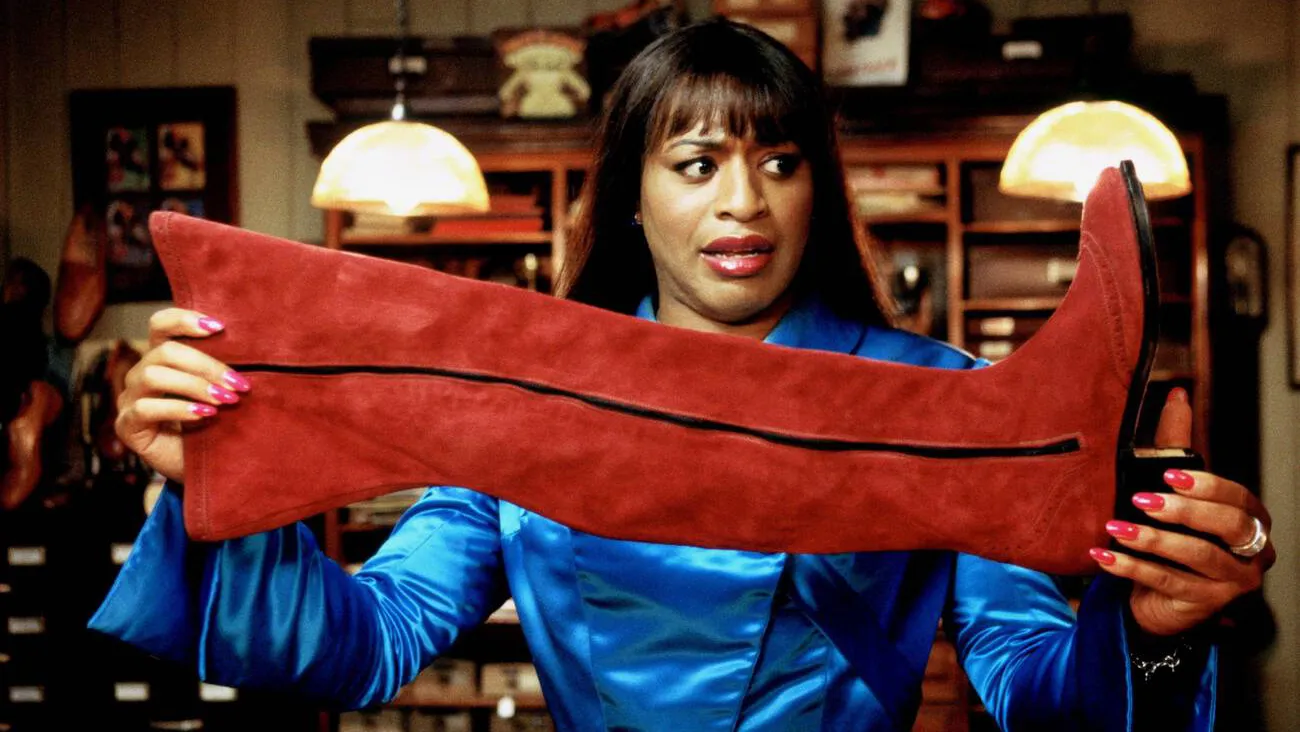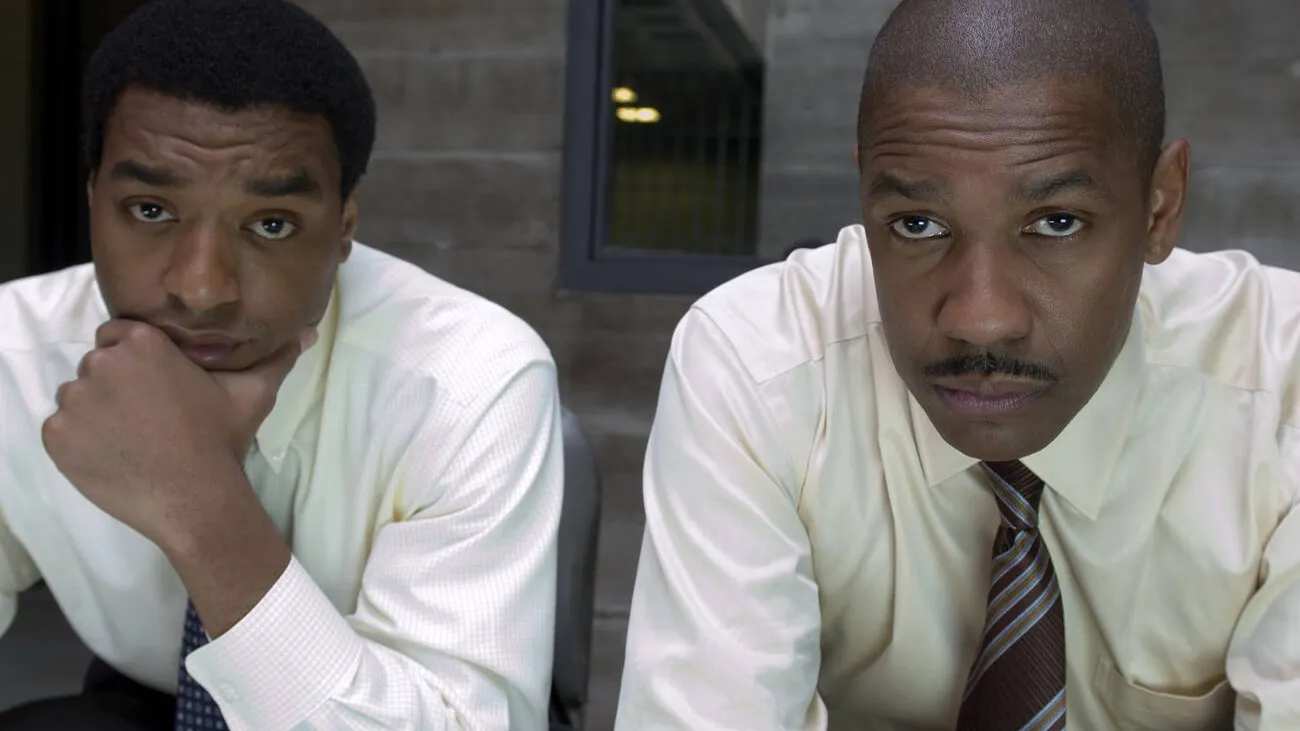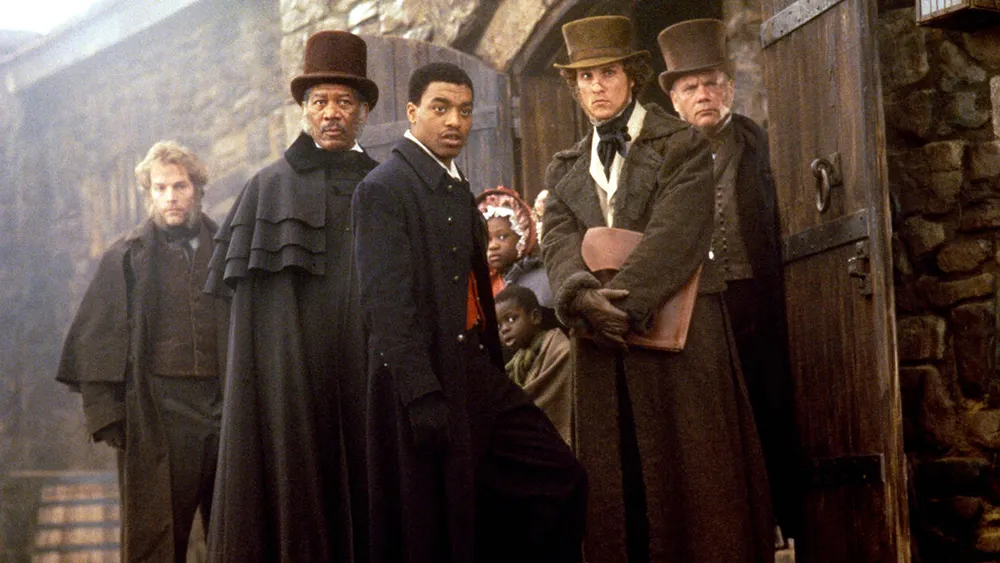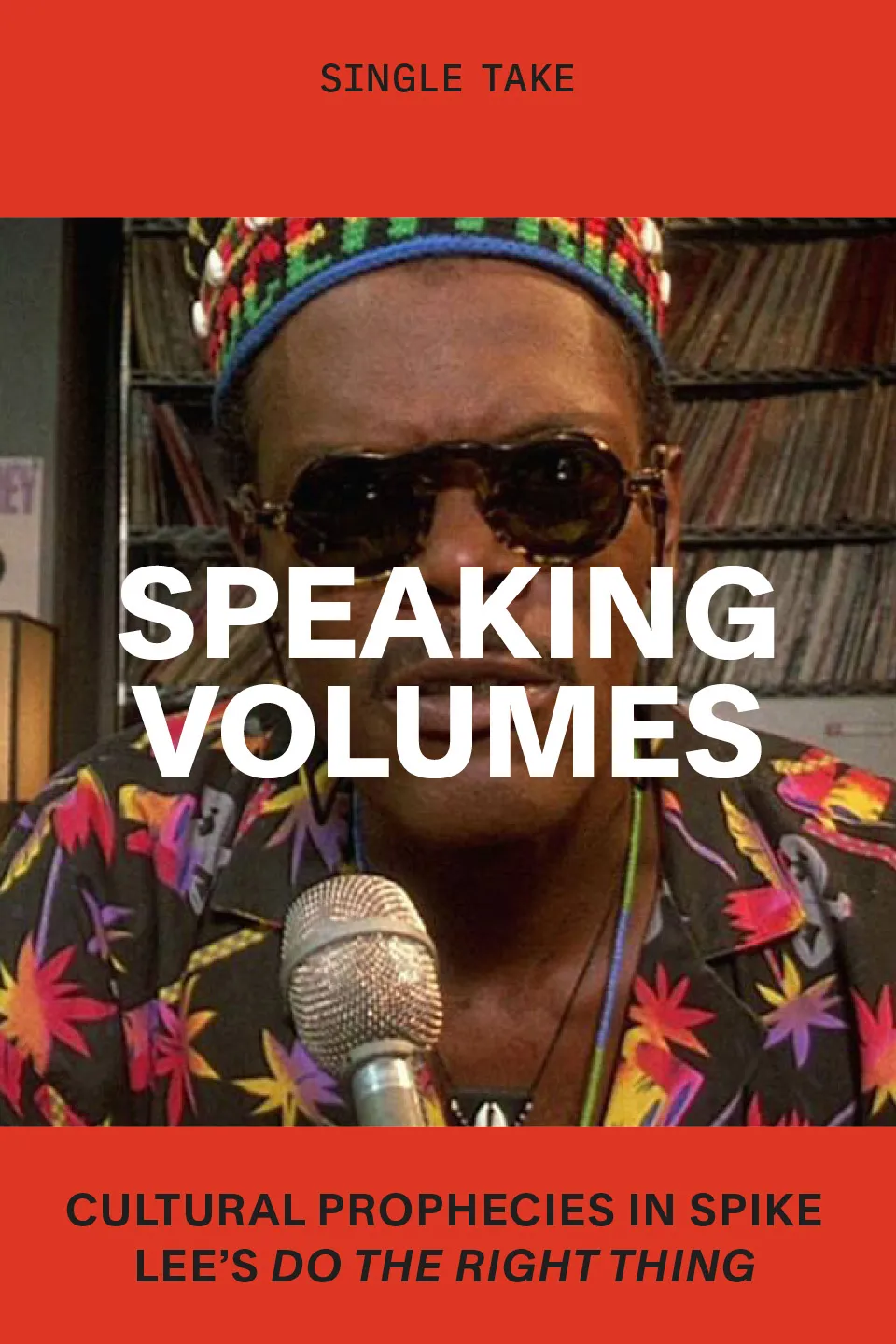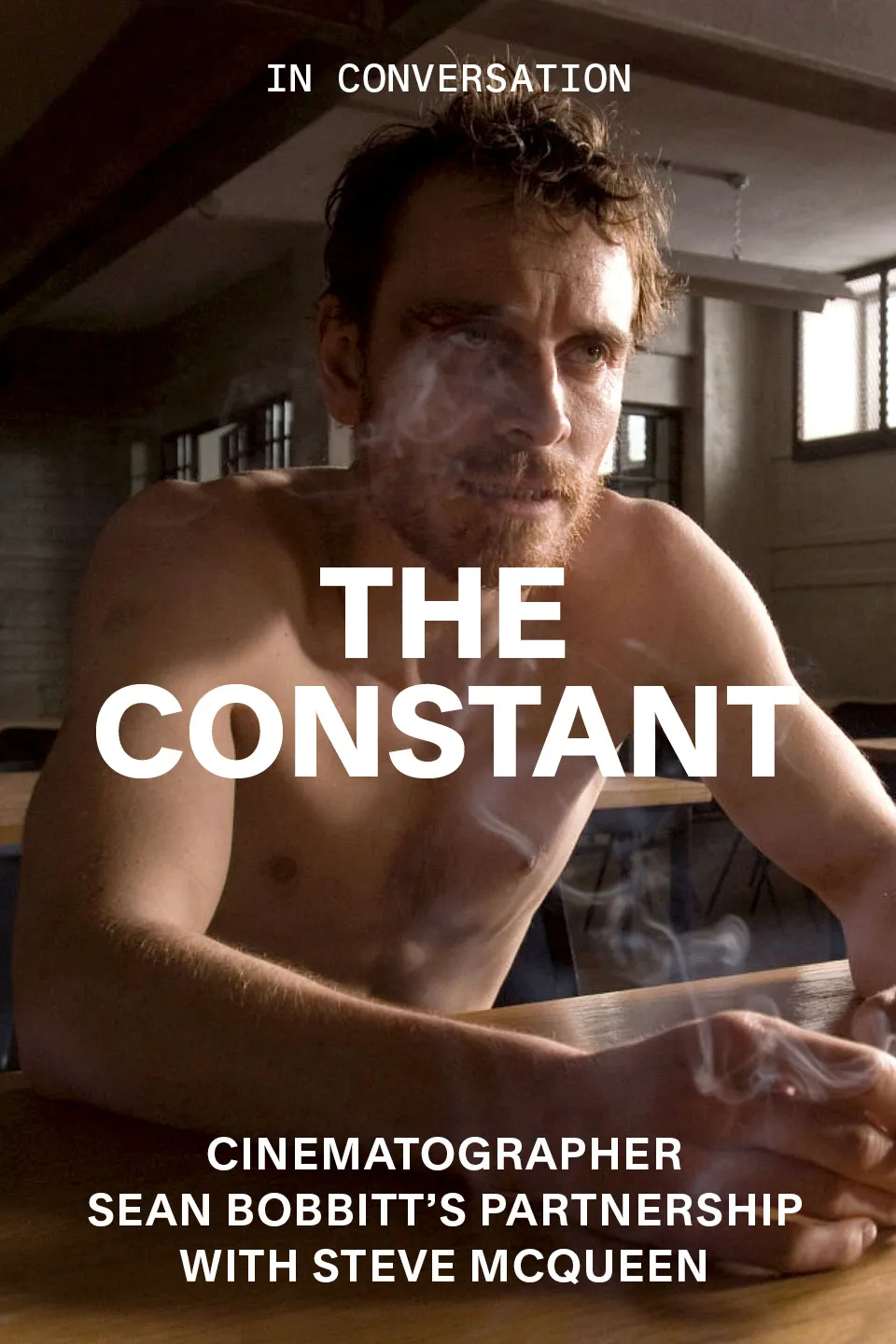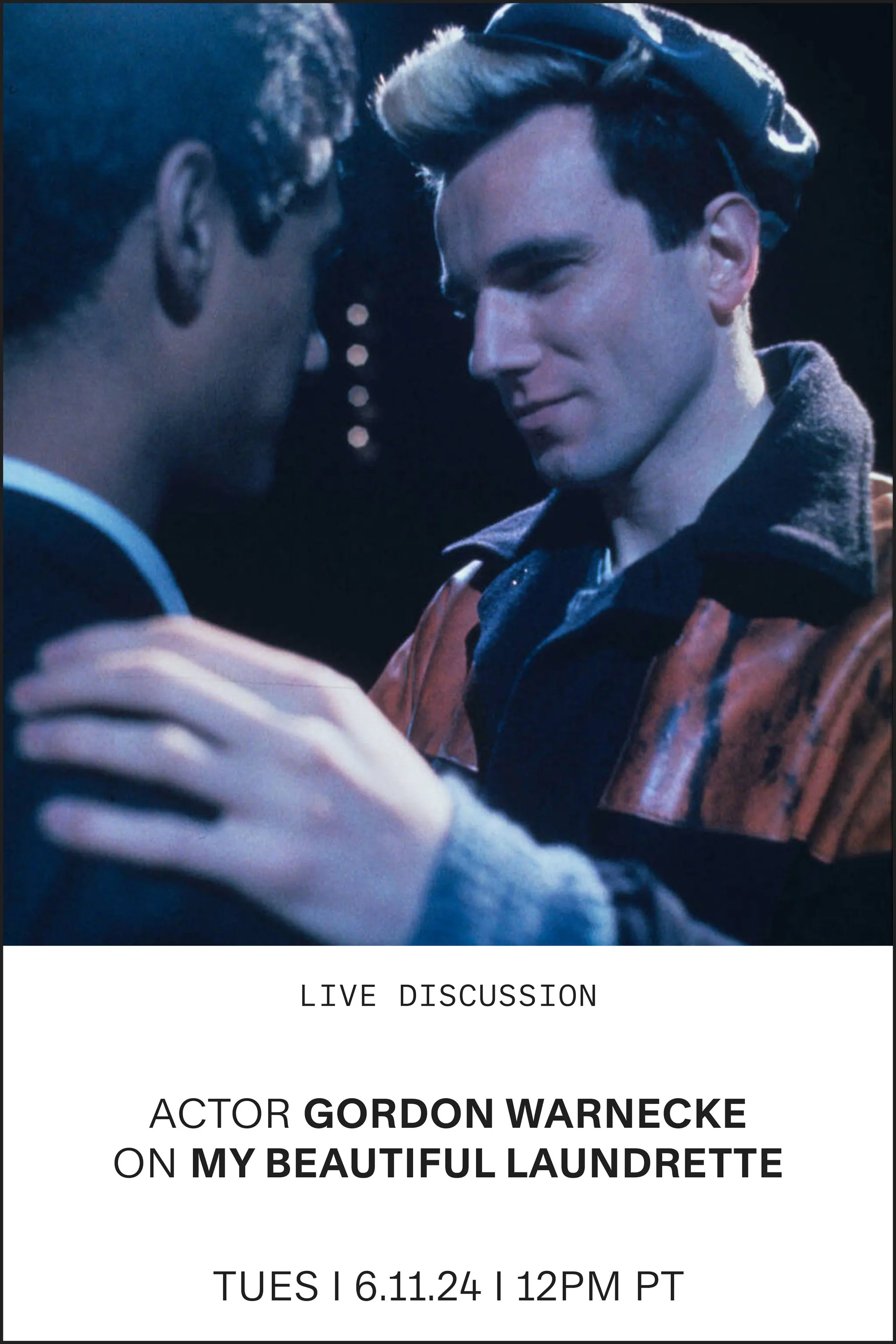Chiwetel Ejiofor's Latest Role
By Kaleem Aftab
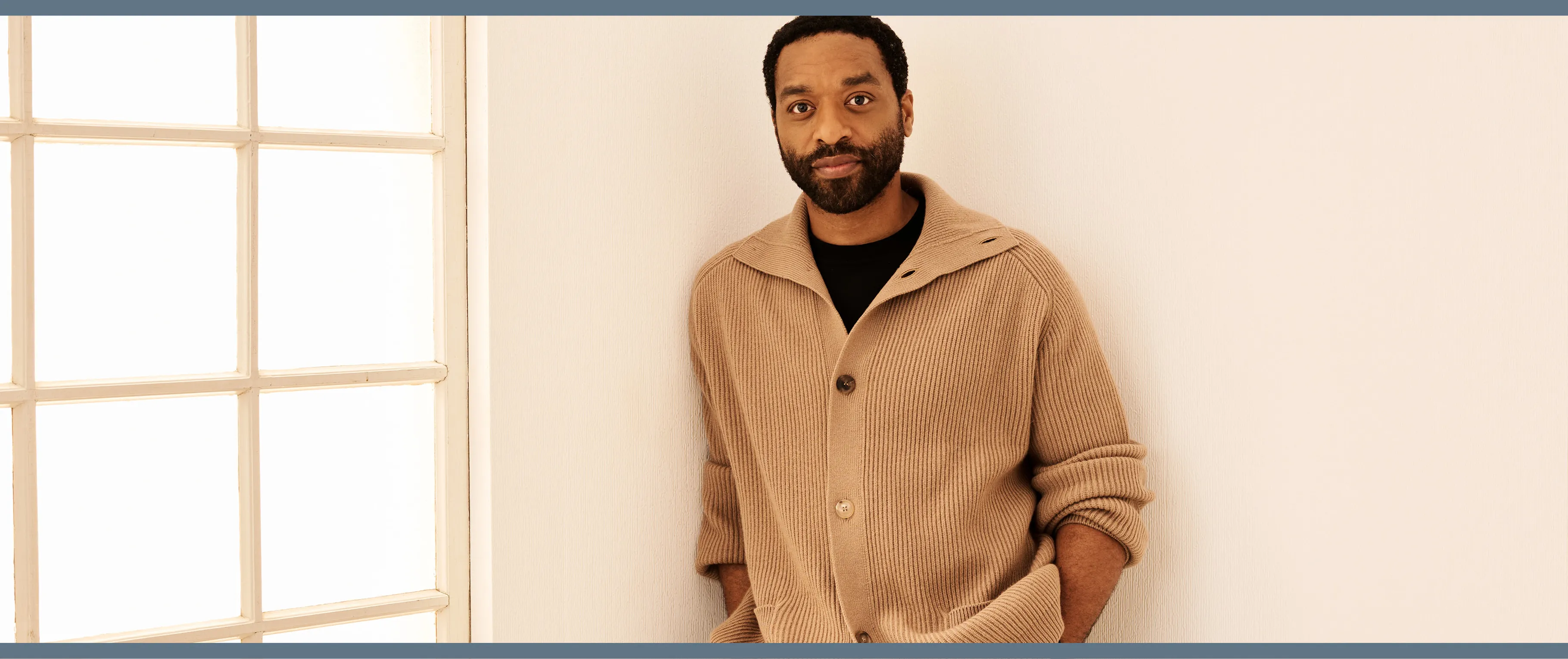
Chiwetel Ejiofor during the Toronto International Film Festival in 2024
Chiwetel Ejiofor’s Latest Role
The virtuosic artist on Cary Grant, code-switching and how directing has changed his approach as an actor
By Kaleem Aftab
January 17, 2025
At the London Academy of Music and Dramatic Art, the drama school Chiwetel Ejiofor attended, students aren’t supposed to pursue auditions for professional roles. But when Steven Spielberg was testing actors for Amistad, the school made an exception. The 19-year-old freshman went along “for practice,” and by the end of his first year, in 1997, he was in Los Angeles working with one of cinema’s most legendary directors. Since then, the British actor has established himself as one of the finest talents of his generation, winning awards in a variety of roles for A-list directors. He excelled as a doctor caught up in a kidney-selling racket in Stephen Frears’s Dirty Pretty Things (2002), changed perceptions of drag artists in Julian Jarrold’s Kinky Boots (2005), pursued bank robbers in Spike Lee’s Inside Man (2006) and led a militant refugee group in Alfonso Cuarón’s Children of Men (2007). In the role that won him an Oscar nomination, Ejiofor played the lead in Steve McQueen’s Best Motion Picture–winning 12 Years a Slave (2013). Add to this his theater CV, most notably his acclaimed turn in Othello at London’s Donmar Warehouse in 2007, and the work speaks for itself.
From left: The Boy Who Harnessed the Wind, dir. Chiwetel Ejiofor, 2019; 12 Years a Slave, dir. Steve McQueen, 2013
But he’s also proven a dab hand behind the camera. His feature directorial debut, The Boy Who Harnessed the Wind, an adaptation of a memoir by William Kamkwamba and Byran Mealer, drew critical acclaim when it rolled out on Netflix in 2019 following a successful festival run. The film tells the true story of a 14-year-old who saved his Malawi village from drought and famine in 2002 by building an electricity-generating windmill with recycled scrap metal and bike parts. In 2024 Ejiofor returned to the directing chair, this time adapting Jeff Hobbs’s The Short and Tragic Life of Robert Peace, published in 2014 to much acclaim. Hobbs’s story explores how Peace, his roommate at Yale, was unable to escape the invisible chains of class, race and capital that kept the American dream out of his reach. The vagaries of movie financing and his own name recognition mean that, so far, his stints as a director have required that he work simultaneously on both sides of the camera. He spoke to Galerie about his journey from acting to directing and why he’s yet to make a film in Britain.
You are well known as an actor. You received an Oscar nomination for your role in Steve McQueen’s historical drama 12 Years a Slave and have worked with some of the world’s most famous directors. How have these experiences affected your career?
Obviously 12 Years a Slave was an incredible experience—right from reading the script to working with Steve McQueen, and understanding the life and the journey of Solomon Northup. It’s always hard to judge how things will affect your career. In my working life, there have been a few of these moments where things have increased—the ability to do certain things, be sent certain scripts and be in a better position to get things financed. When I made Amistad, it was deeply significant, because it made me aware that I was being allowed into the room. I was auditioning, being invited to read different scripts that were taking place in the UK or in the States, and things really opened up. And then getting asked to work with Spike Lee as well as Woody Allen and Ridley Scott, for American Gangster [2007], after they saw Dirty Pretty Things. All of those things opened up my career in large and different ways.
You have worked with so many incredible directors. As an actor, what do you learn from them? What did you take from them when you moved into directing yourself?
The thing that changes me most as a director is directing. The thing that changes me most as an actor is directing. As an actor, with any director, you’re advocating for your character. I think really strong directors have enough room to listen to how an actor is advocating for a character, what an actor feels and thinks and sees this character doing. Sometimes you’re in agreement with the director, and sometimes you’re not and you’re trying to align. What’s consistent with all of the incredible directors I’ve been lucky enough to work with is that they’ve all been really open to understanding how an actor is entering a part. So as a director, what I want to do is give an actor that kind of space and give them this authority over a character. That’s something that I felt that I had been given by a lot of directors. But once you start directing, it changes you as an actor, because you’re so much more aware of trying to give a director choice as well. You want to have the authority over your character, but you are also aware of how helpful it is in the editing phase for a director to have some choices if he or she wants to take things in a slightly different direction.
“The thing that changes me most as a director is directing. The thing that changes me most as an actor is directing.”
What films did you watch growing up that made you want to get into the movie business?
It was really people that got me into acting more than films. I remember first seeing Cary Grant when I was very young and thinking that he was amazing. I remember following him as an actor, just always intrigued by seeing different Cary Grant films. He had this whole arsenal of stuff he could do—that sort of witty repartee, the sort of handsome hero, and then he could do all of these intense dramatic roles, with some action in there as well. He could do everything, but it never felt forced. I was mesmerized by that. I wasn’t thinking about being a film actor at that time, but Cary Grant was always somebody I really loved. Then obviously, the great actors of the more modern era, Robert De Niro and Al Pacino and Denzel Washington, are absolutely incredible. That’s what made me excited to be an actor.
As a director you have adapted two books into films, The Boy Who Harnessed the Wind and now The Short and Tragic Life of Robert Peace. Both are books about young Black people who excel academically, but they have very different endings. What attracted you to Rob Peace?
I read the book about 10 years ago, when it came out. It spoke to things that I had been thinking about, but not in as structured a way as author Jeff Hobbs was able to present in his novel, which showed this intersection between race, housing, education and the criminal justice system, and the idea that Rob is battling unseen forces, incredibly powerful forces, that resulted from generational and systemic issues. I was very moved by it and immediately thought that there was something there in terms of film. But as the book was a New York Times bestseller, I assumed the rights had gone. A year or so later, I got a message from [Rob Peace producers] Antoine Fuqua and Rebecca Hobbs that they’d seen The Boy Who Harnessed the Wind and were interested in whether I would look at adapting and directing Rob Peace. Obviously, I jumped at the opportunity to get involved.
As you researched Rob’s story, what were some of the systemic challenges that struck you about his life?
For me, it was the way the wider media—the establishment—looked at Rob’s story, and how it was written about at the time in this very deeply unsympathetic way. The news reports are still online, and the tone is judgmental. It’s the language of “pulled back,” “can’t escape” and “couldn’t get out,” which indicates the belief that here is somebody who has all these opportunities but because of a certain kind of pathology they’re not able to utilize them—like having an honors degree from Yale. Rob’s story is a very extreme example of social mobility gone wrong. I felt the language was remarkably ungenerous. It didn’t allow for the specific circumstances that Rob was in, circumstances that to a large part were systemic. To not recognize this can lead people to think that if somebody doesn’t take opportunities, or things don’t turn out completely positively for that person, they are individually to blame. I don’t think that is true.
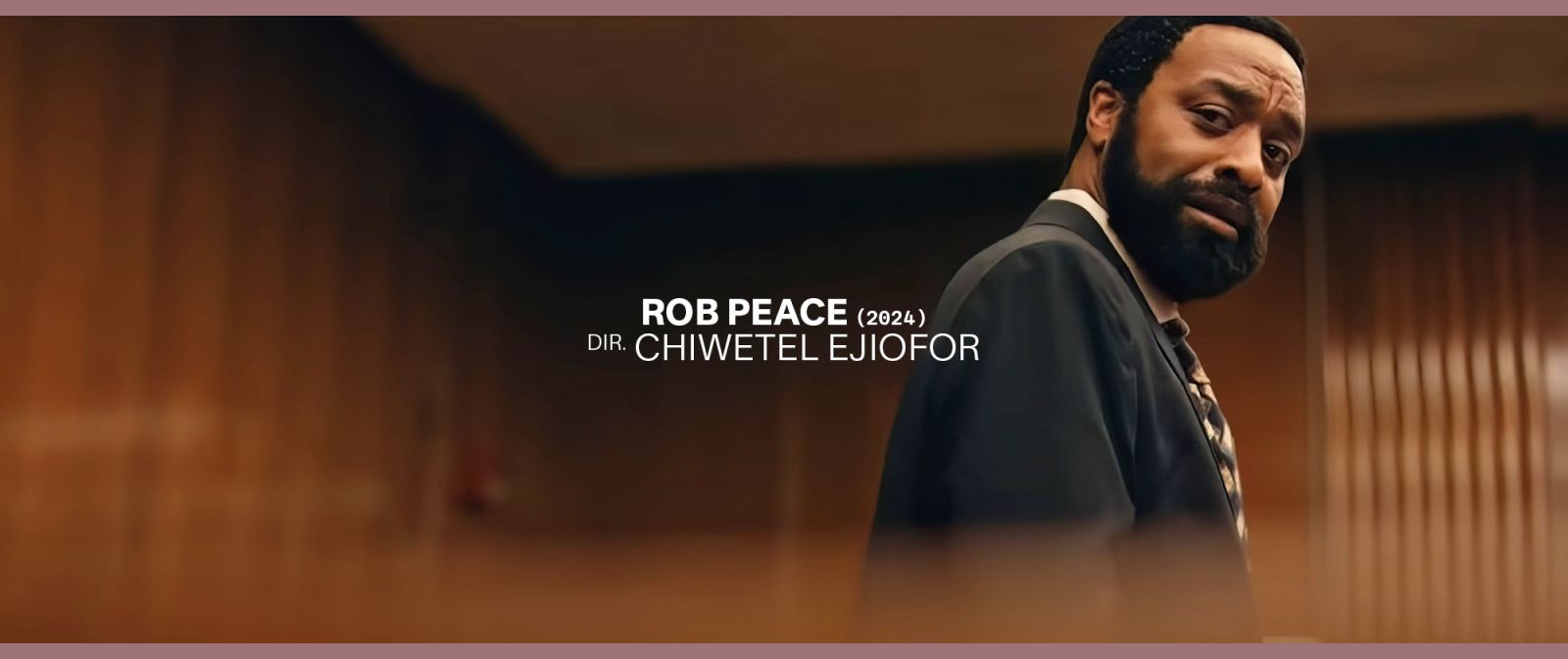
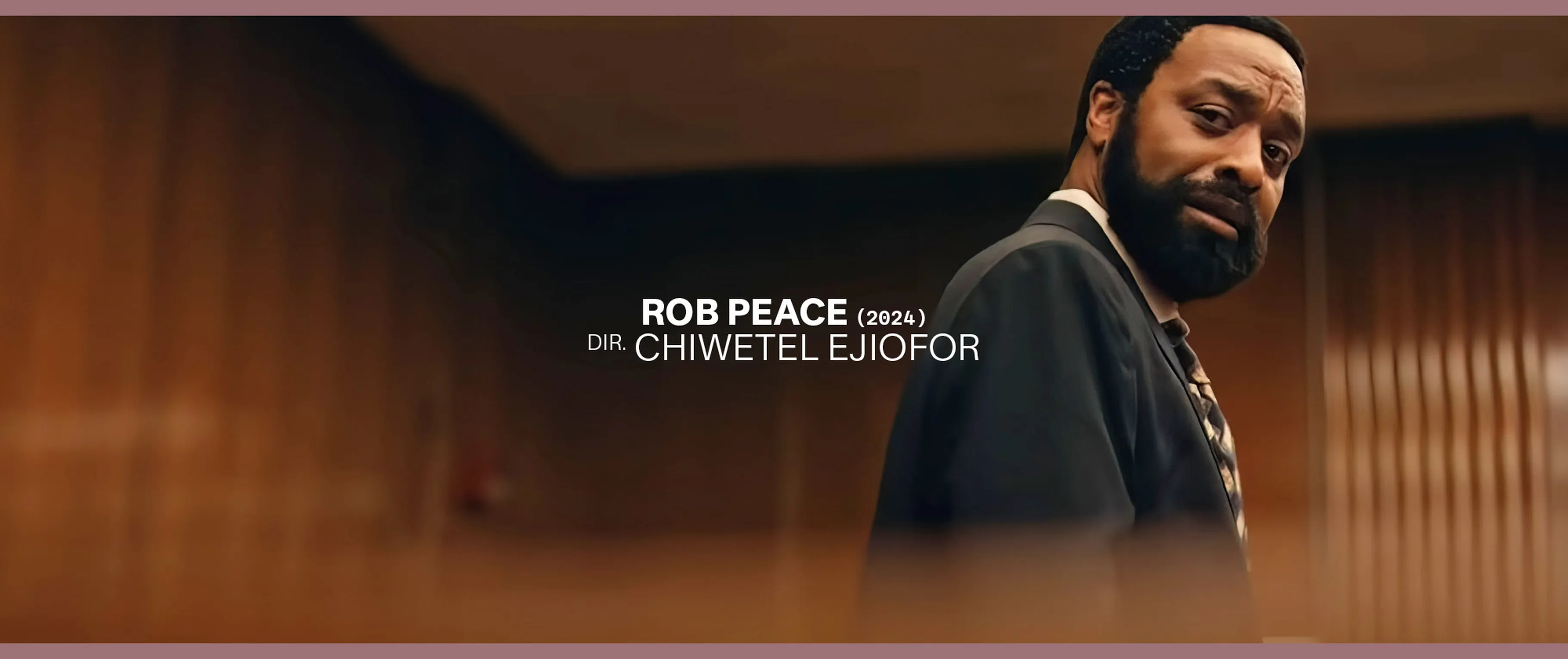
As you’re adapting the book, the Black Lives Matter movement begins. Do you think that had an impact on your scriptwriting?
For me it definitely informed what I was talking about, because it was at the heart of why Rob Peace and his life mattered. Rob Peace is a person of value, and the utilization of language like “he couldn’t get out” or “he got dragged back in”—all of this stuff that minimizes what he experienced. It all plays into the systemic minimizing of Black life, and so shining a light on Rob’s experience, highlighting the challenges that he specifically faced, was to me a way of talking about how Black lives matter.
Were there films you referenced in directing Rob Peace?
I was interested in certain kinds of tonality. I watched Munich [2005] not long before I made Rob Peace. It’s hard to imagine that as an influence, but I was interested in what they were doing with the camera, as well as some of the color dynamics in that film. I also watched Michael Mann’s The Insider [1999], because that has such a strong way of increasing tension through the story. I revisited Krzysztof Kieślowski. Again, it’s hard to see the overlap, but in Dekalog [1989–1990] I admired the interpersonal relationships, how people talk to each other.
This film shows how even when Rob arrives at Yale, that doesn’t mean he has made it. He’s still an outsider. You had an experience of this in the UK when you went to Dulwich College in your teenage years. How much did the experiences you had chime with Rob’s?
When I was reading the book, there were sections of Rob’s experience I related to so completely, it was like putting on a familiar coat. You just know every hook, every jab. Back then, there wasn’t a word for microaggressions—they were just daily experiences of pushing through a sense of being an outsider, of being prejudged often, of being dismissed, of being minimized. I would see people succumb to and fall under the weight of that. Other people were leaning into it, pushing against it and bucking the system. All the different ways in which people try to navigate being an outsider. One of the things that was interesting about Rob’s experience is where he was similar to how I perceived things, and also where he was different.
Can you give examples?
He could exist in various different spaces, as I did. But my background is middle class, in the English sense. Both my parents were professionals, a pharmacist and a medical doctor. So the differences in my world weren’t as extreme, but there were distinctions. Just being the child of immigrant parents, you have all the cultural differences. I could really relate to that aspect of Rob. But I think where he was different from me, and I was very impressed by this in him, is that this was never going to be a story about code-switching, because Rob didn’t code-switch. I’m not saying that I did particularly, but I would never have worn a do-rag in a science lab. I would be more insecure about what that would mean and how that would affect people’s reactions to me. Rob—from everything that I heard and everything that Jeff writes about him—was not concerned about that. He was only concerned about having his own authentic experience, so he wouldn’t be calculating or considering how being himself was affecting other people. Whereas I definitely would be hyperaware. It’s something that I’ve tried to capture in the film, that Rob is authentically himself in all of these different spaces, that he allows people to come to him even though others might see his behaviors and choices as challenging or alienating or difficult. He rose above that in many ways.
![<I>Children of Men</I>, dir. Alfonso Cuarón, 2006]() Children of Men, dir. Alfonso Cuarón, 2006
Children of Men, dir. Alfonso Cuarón, 2006![<I>Kinky Boots</I>, dir. Julian Jarrold, 2005]() Kinky Boots, dir. Julian Jarrold, 2005
Kinky Boots, dir. Julian Jarrold, 2005![<I>Inside Man</I>, dir. Spike Lee, 2006]() Inside Man, dir. Spike Lee, 2006
Inside Man, dir. Spike Lee, 2006![<I>Amistad</i>, dir. Steven Spielberg, 1997]() Amistad, dir. Steven Spielberg, 1997
Amistad, dir. Steven Spielberg, 1997
The flip side is that Rob’s selling drugs fits a negative stereotype of the so-called Black experience. How did you try to balance this with your desire to both show his systemic plight and veer away from cliché?
It’s always interesting, this idea of legality and criminality and how that is represented in regard to the Black experience. Rob sold a bit of marijuana. In that interim period, between when he was selling and the film being made, marijuana has become largely decriminalized all over the world. So that’s an important distinction. He wasn’t selling hard drugs. People talk about Rob as dealing drugs, but it’s very important to categorize what he was actually doing and how in all of our experiences, there are people who are thought of as drug dealers, and people who are not necessarily thought of as drug dealers but are people that one gets drugs from. At university and at colleges all over the world, there will be people who know friends from their history class or whatever, who might have a bit of extra of something of this or that. They don’t think of that person as a drug dealer. They think of them as their friend Dave, who’s very well-connected, and who’s a cool guy; but that person is technically a drug dealer. We have to think of the nature of what was legal in the circumstance and ask if we have the same thought processes around the prohibition of alcohol. Or even about homosexuality. What is the perception of the people who did illegal things in those times? Obviously, these are complex matters. So I never saw and still don’t see Rob within that very narrow context. And my hope is that audiences, when they watch the film, can also see beyond that. They can also recognize that, actually, his creating this strain of marijuana and being successful with it would make him incredibly wealthy today, and he could have done it legally.
If I were to believe the legend of Chiwetel Ejiofor, it suggests that you were miraculously plucked from the streets of London and handed a role in Steven Spielberg’s Amistad. Now you are the director looking to cast a young Black actor. What could you take from your own experience to inform your choice?
I feel like I know the work that it takes to get anywhere. I know the amount of real sweat that goes into being an actor, especially as you’re beginning your career. So I was very curious who would play Rob. It’s a very difficult part. There’s an incredible amount going on. It needed a young actor, and so the likelihood was that it would be somebody who hasn’t maybe had experiences of being a leading man before. It needed to be somebody who is really passionate, not only talented but has a work ethic. I believed in Jay Will from the moment I saw him. He came out of the Covid years at Juilliard, so it wasn’t like there were major showcases. Everything that he had done was all online. There were speeches from different films, and the one that I saw that really got my attention was from American Gangster. Maybe it was because I’m very familiar with the speech.
Was it one of your monologues from that film?
He didn’t do one of mine, he did one of Denzel Washington’s speeches that takes place toward the end of the film. I could immediately recognize that he had put in an incredible amount of effort into getting that. First of all, he made it his own, which was hard to do with one of Denzel Washington’s bravura performances. He made it absolutely authentic. He changed a lot of the cadence and the rhythms of it. He did things that maybe somebody who wasn’t aware of that speech as much as I was wouldn’t have necessarily noticed, but I was immediately struck by how much work he put into it, even though it looked effortless. I was really impressed. We did some workshops, and he demonstrated the exact same intensity and capacity, and the same ease of delivery.
As you did with The Boy Who Harnessed the Wind, you play a role in a film you are directing. This time it’s Rob’s father, Skeet. What are the challenges?
I think the complication is that the challenges are different—like you hope that they’re going to be the same challenges. I went to see Rob’s mother, Jackie Peace, and one of the first things she said when she opened the door to see me was “You look like Skeet.” And she ran upstairs and got a picture of Skeet when he was younger, and from that point I knew that I would play the part. But having those sorts of reinforcements along the way, as well as the work of understanding Rob and Jackie as a director, was also important in terms of building my understanding of the different forces at play generationally through this family. In some ways, that becomes the work of an actor as well. The jobs bleed into each other. What’s hard is when you have to turn all of those thoughts off that you have as a director in order to give yourself the space as an actor, because an actor should not be concerned about the location, costumes and camera. An actor shouldn’t be worried about trying to get through the close-up quickly so that they can move to the next location on time. Learning to shut out that noise was a different skill. If a director was trying to push me to get through something because of the logistics of the shoot, as an actor I would freak out.
You’ve made films in Africa and in America. How did the experiences on The Boy Who Harnessed the Wind and Rob Peace compare?
Shooting The Boy Who Harnessed the Wind in Africa was a beautiful and wonderful experience. There were some logistical complications, but in the end they were resolved. We were using personnel and equipment from Kenya and South Africa because there hadn’t really been a film of that size made in Malawi before at that point. Yet there was a richness you could get from the place that really feeds you, especially how supportive the people are. Now, shooting Rob Peace in New Jersey is very different. It has its own beauty, but it’s a very tried-and-tested place to shoot films. There is a kind of pattern to the way things go that doesn’t give you that exhilaration you get when you feel that you’re making things up as you go along. And it’s cold. We shot the film over winter, which is very different from the blazing sunshine of Malawi. But again, wherever you are, you’re looking for the support of the people around you, that sense of community, and we got that in East Orange, where we mostly filmed.
Why aren’t you making films in Britain where you live?
Well, that’s a great question. I think it’s something that will change. You know, I want to make films in the UK and about the UK, and so finding the right thing to do is really important to me. But again, it’s not necessarily a calculated process. I happened to read two extraordinary pieces of literature that really moved me in The Boy Who Harnessed the Wind and Rob Peace, and it propelled me to want to talk about these two young men’s lives, and what they experienced, and how those experiences in some ways reflected some of my experiences. That sort of organically occurred, and I think that’s how I am as an actor as well—I can read something that simply gets me on a set.
